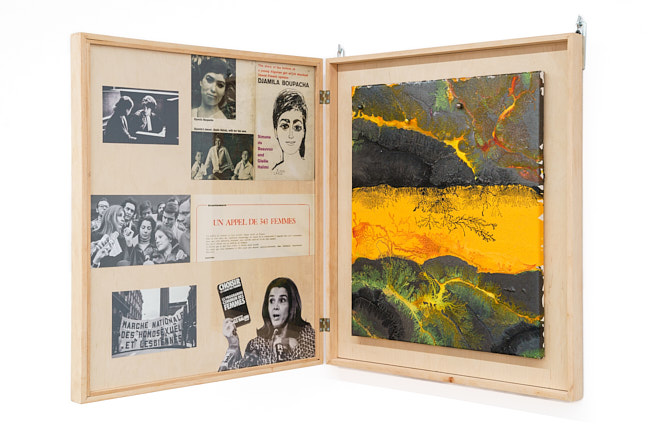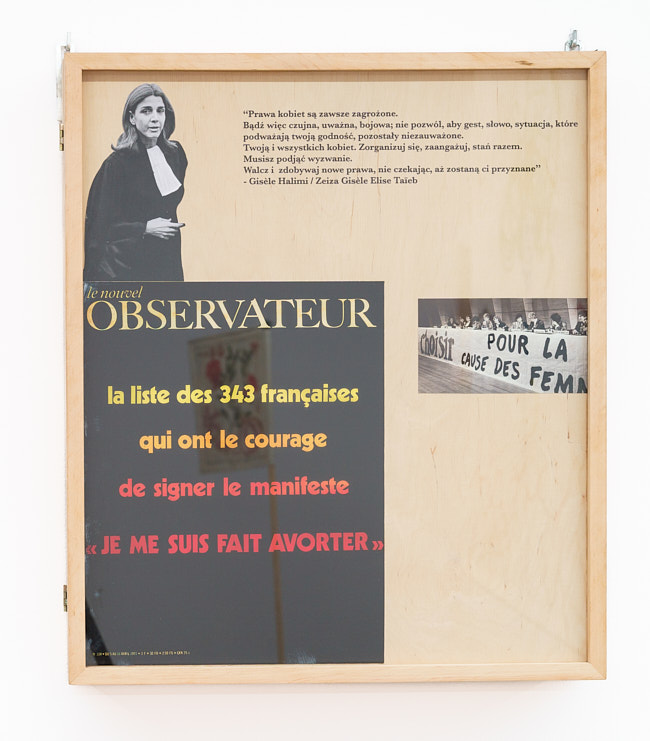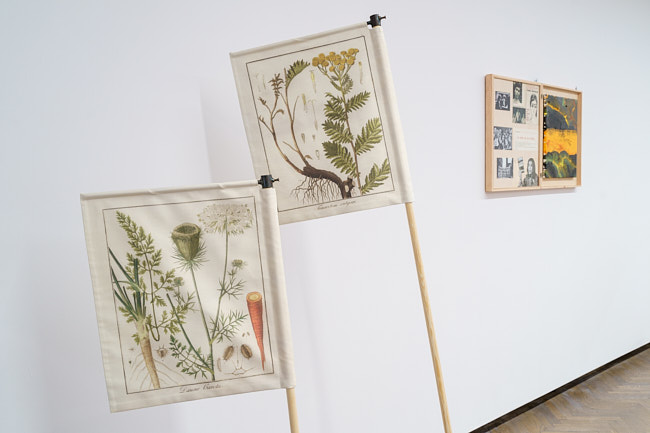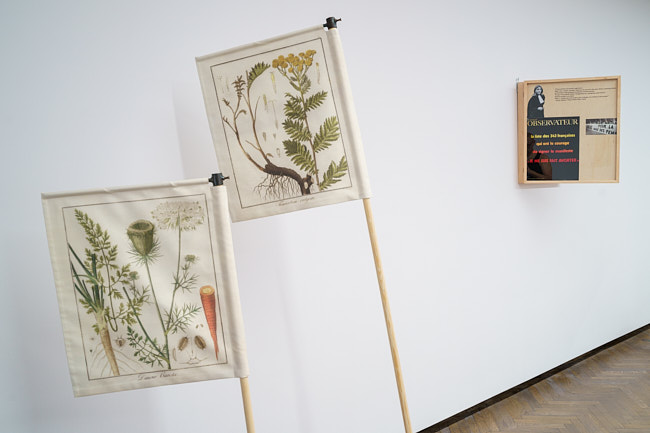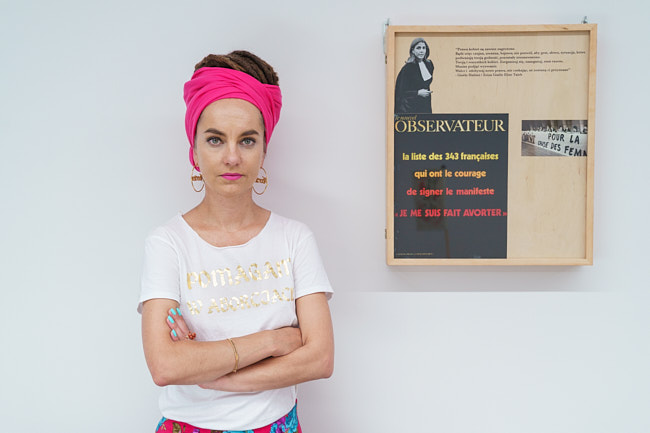Tribute to Gisèle Halimi / Zeiza Gisèle Élise Taïeb
2023, wooden box, collage, painting, 57 × 49 × 7 cm (closed)
series Women Fighters. An Affective Archive
Zuzanna Hertzberg, Tribute to Gisèle Halimi/Zeiza Gisèle Élise Taïeb, 2023, wooden box, collages, painting, 57×49×7cm (closed)
Zuzanna Hertzberg,Tribute to Gisèle Halimi/Zeiza Gisèle Élise Taïeb, 2023, wooden box, collages, painting, 57×49×7cm (closed)
Zuzanna Hertzberg, Tribute to Gisèle Halimi/Zeiza Gisèle Élise Taïeb, 2023, wooden box, collages, painting, 57×49×7cm (closed). Photo documentation of the solo exhibition Mechitza, Arsenał Gallery, Bialystok, 2023. Photo: M. Tym
Zuzanna Hertzberg, Tribute to Gisèle Halimi/Zeiza Gisèle Élise Taïeb, 2023, wooden box, collages, painting, 57×49×7cm (closed). Photo documentation of the solo exhibition Mechitza, Arsenał Gallery, Bialystok, 2023. Photo: M. Tym
Zuzanna Hertzberg, Tribute to Gisèle Halimi/Zeiza Gisèle Élise Taïeb, 2023, wooden box, collages, painting, 57×49×7cm (closed). Photo documentation of the solo exhibition Mechitza, Arsenał Gallery, Bialystok, 2023. Photo: M. Tym
Born in Tunisia to a conservative Jewish family, Gisèle Halimi from an early age rebelled against imposed social norms. She was a lawyer, activist, feminist, and writer, in later years also a politician and parliamentarian.
In 1960, she took on the defence of a young Algerian woman, Djamila Boupach, a member of the National Liberation Front accused of a bombing in an Algerian café. Thanks to her actions, the woman sentenced to death, tortured, and raped during interrogations by French soldiers, was pardoned (1962). This case gained worldwide attention and was a strong voice for advocacy against the modern forms of colonialism.
In time, her activities became focused on the fight for women’s rights, particularly reproductive justice. In 1971, she signed an appeal published in Le Nouvel Observateur, referred to as the ‘Manifesto 343’, in which 343 women, admitted publicly that they had undergone an illegal abortion and demanded autonomy in making decisions about their own bodies and freedom of choice in matters of parenthood. In their appeal, they pointed to social and economic factors, emphasizing that illegal abortion means no access to safe abortion for underprivileged women. It was called a ‘slut manifesto’ by opponents of accessible abortion.
In the same year, she founded the feminist group Choisir (To Choose), which was initially intended to protect the signatories of the appeal and, after a year, evolved into an organization working for accessible contraception and the law decriminalizing abortion, which was passed in France in 1974.
In 1972, she took on the defence of three women, including a 17-year-old charged with aborting a pregnancy that resulted of rape, and led to her acquittal (the landmark Bobigny trial). She made history as one of the first women’s rights advocates, paving the way for legislative reforms that led to the decriminalization of abortion in France. Her actions combined a rebel stance with an in-depth analysis of a male-dominated world that is based on discrimination and exclusionary policies.

